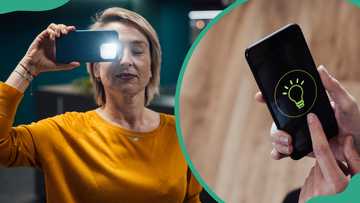What is OTG in phone settings? The function and how to use it
In today’s interconnected world, smartphones have evolved into powerful devices that go beyond traditional communication. One of the standout features enhancing mobile functionality is OTG or USB On-The-Go. What is OTG in phone settings? Explore it's meaning, functions, and other tips.
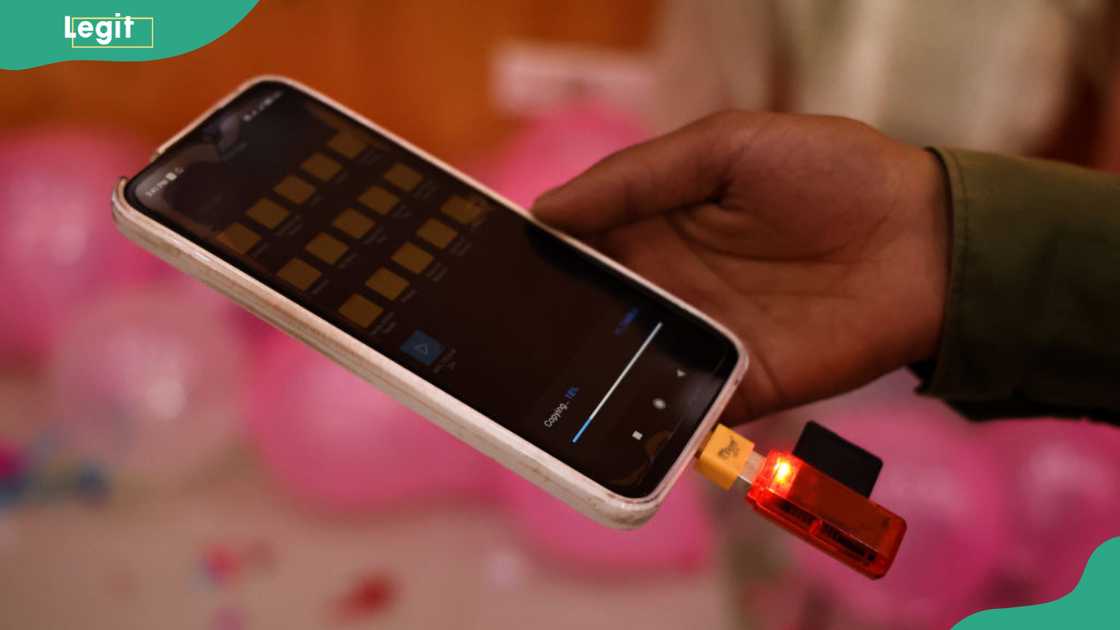
Source: Getty Images
TABLE OF CONTENTS
- What is OTG in phone settings?
- What is OTG used for?
- How to turn on OTG on Android?
- How to fix OTG issues on your smartphone?
- How do I remove OTG on my phone?
- What is OTG's meaning?
- Where is OTG in settings?
- What happens when you enable OTG?
- Why does OTG automatically turn off?
- Why is OTG showing on my phone?
OTG, or USB On-The-Go, was first introduced in 2001 and is supported by most major mobile platforms, including Android, iOS, and Windows Phone. USB OTG allows devices to switch between the roles of host and device, making it a great way to add more functionality to your mobile device.
What is OTG in phone settings?
OTG or USB On-The-Go is a specification that allows a device, such as a smartphone or tablet, to act as a host for other USB devices, such as flash drives, keyboards, mice, and cameras.
Initially, USB devices needed to be connected to a computer or similar host device to function. However, with OTG, your Android device can serve as the host, allowing it to interact directly with various USB peripherals without needing a PC.
To use it, you must have a cable with a USB-A connector on one end and a USB-micro or USB-C connector on the other end. These cables allow you to connect your mobile device to your desired peripherals.
What is OTG used for?
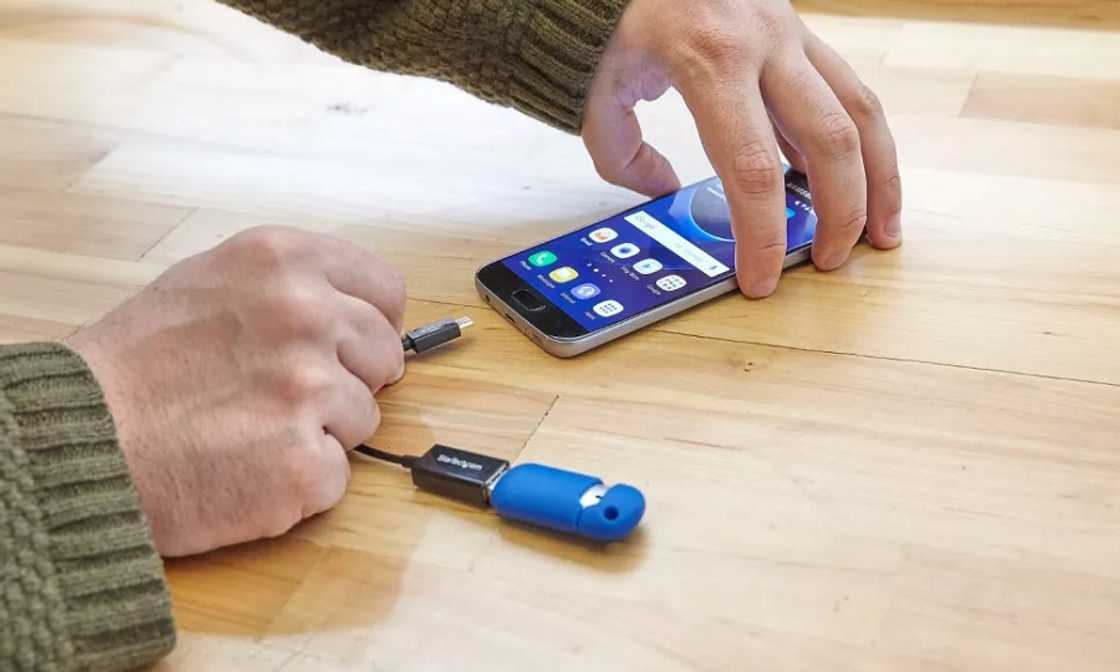
Source: Getty Images
There are many functions you can complete with OTG. Some of the common ones include:
- Access USB sticks and external hard drives: One of the most popular uses of OTG is connecting USB flash drives or external hard drives directly to your phone.
- Transfer photos directly from a camera to your phone: With OTG, you can connect your DSLR or compatible camera directly to your phone and transfer photos instantly.
- Connect your smartphone directly to a printer: OTG allows you to connect your smartphone or tablet directly to the printer. This means you can print documents, photos, and PDFs without needing a Wi-Fi connection or a computer.
- File transfer: An OTG cable lets you directly connect two phones and transfer data such as contacts, messages, photos, and even apps from one device to another.
- Expand your device's storage capacity: With OTG, you can use external storage devices to expand your phone's capacity.
- Gaming with controllers: OTG can also enhance your gaming experience by allowing you to connect external game controllers to your phone.
- Connect to audio devices: Some audio devices, such as digital audio converters (DACs), can also be connected to your phone via OTG to improve sound quality.
How to turn on OTG on Android?
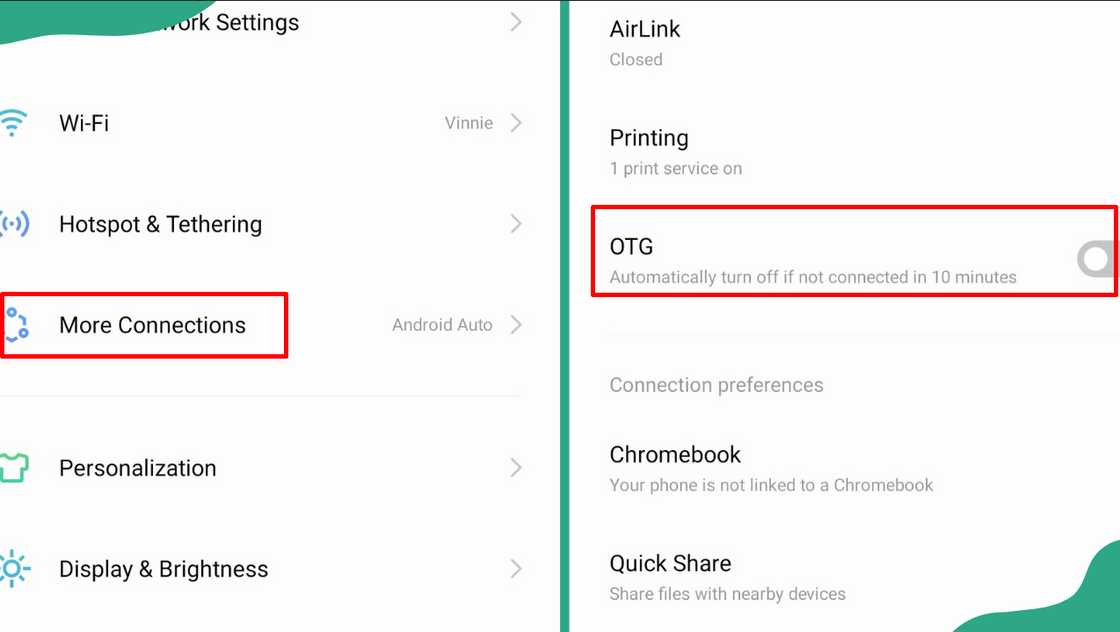
Source: UGC
Follow this four-step procedure to entirely enable OTG mode or the OTG functionality to copy or move files from Android to USB.
- Open your phone’s 'Settings'.
- Search for 'Connected Devices' or 'Additional Settings'.
- If OTG is supported, you will find an option to enable it, often labelled 'Enable OTG' or 'OTG connection'. Toggle on it.
- Once enabled, you can connect a pen drive or USB device to your smartphone. If you are struggling to find it, you can quickly access it by searching "OTG" in the search bar within the settings menu.
How to fix OTG issues on your smartphone?
If you are facing issues with OTG (USB On-The-Go) not working on your smartphone, here are several troubleshooting steps to fix common OTG problems:
- Ensure OTG is enabled
- Use a compatible OTG cable
- Check device compatibility
- Restart your phone
- Update software
- Use a file manager app
- Clear USB cache
How do I remove OTG on my phone?
To safely remove OTG from an Android phone, follow these steps:
- Open the Settings app on your Android device.
- Navigate to Battery and Device Care.
- Tap on Storage.
- Find the USB section and tap on the three vertical dots (menu icon).
- Select 'Unmount' or 'eject' based on a device to safely disconnect OTG. This process ensures that any data transfer is properly completed and helps prevent data loss or corruption.
What is OTG's meaning?
OTG stands for On-The-Go, which is a specification that allows USB devices, such as smartphones and tablets, to connect directly to other USB devices.
Where is OTG in settings?
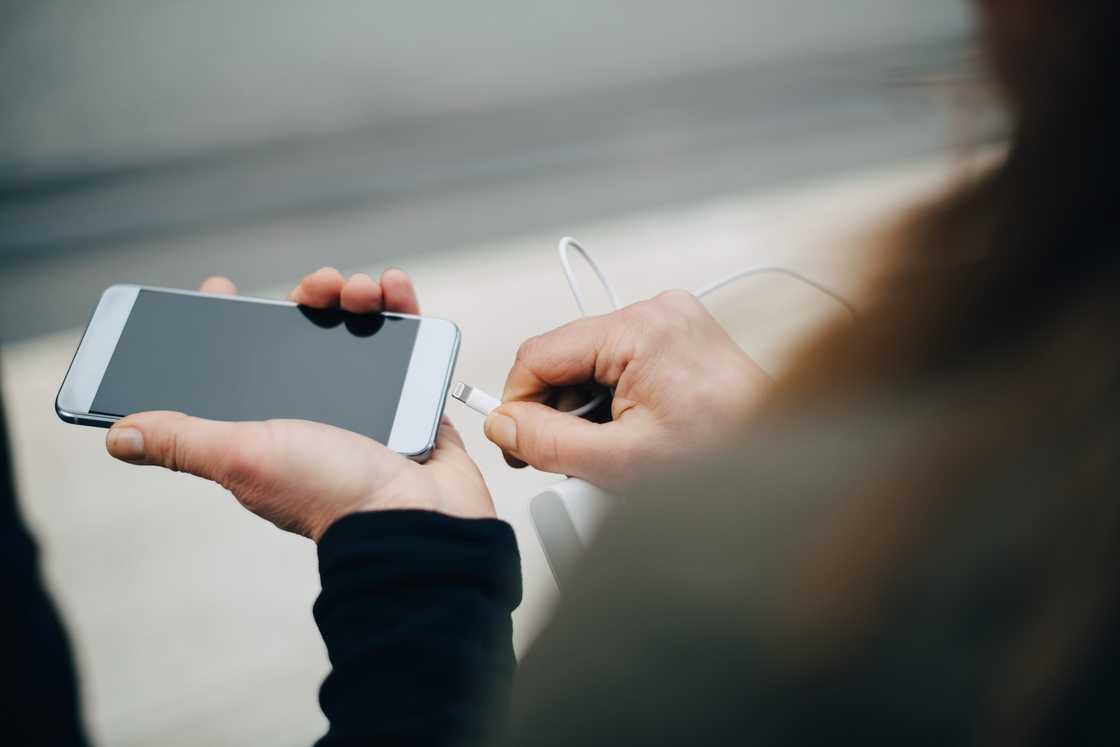
Source: Getty Images
The location of OTG settings can vary depending on the phone’s Android version. However, they are typically found under 'Connected devices,' 'Storage,' or 'Additional settings.'
What happens when you enable OTG?
When you enable OTG, your smartphone becomes a host device, allowing it to directly connect and communicate with USB peripherals like flash drives, keyboards, and cameras. This enables file transfers, device control, and additional functionality without a computer.
Why does OTG automatically turn off?
Some devices automatically disable OTG after a period of inactivity to conserve battery life. Maintaining OTG functionality requires a small but continuous amount of power, which can drain the battery over time.
Why is OTG showing on my phone?
OTG shows on your phone when it detects that an OTG-compatible device, such as a USB flash drive or peripheral, has been connected.
What is OTG in phone settings? It is a device standard specification that allows your Android phone to receive and send data with a USB device. If you want to add more functionality to your mobile device, OTG is a great option. It is a simple and affordable way to get more out of your device.
Legit.ng recently published an article on various methods for removing the headphone icon on Android. The article provides a comprehensive guide on identifying and resolving common audio issues, including checking volume settings, adjusting sound effects, and ensuring that your device is not in silent mode.
Additionally, the article offers insights into how to reset audio settings and troubleshoot specific apps that might be causing problems. Whether you're experiencing issues during calls, gaming, or listening to music, these tips will help you restore sound functionality on your Android device.
Source: Legit.ng


